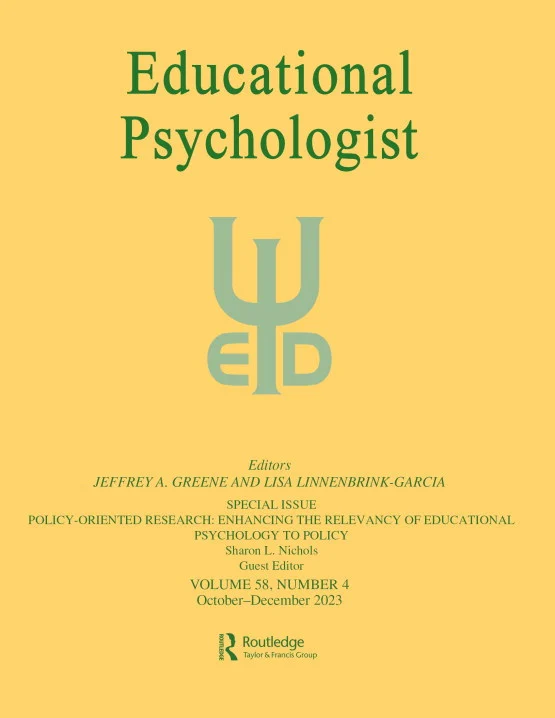Teachers’ social-emotional characteristics and student outcomes: A commentary
IF 11.4
1区 心理学
Q1 EDUCATION & EDUCATIONAL RESEARCH
引用次数: 4
Abstract
Abstract The disconnect between educational theory and practice is problematic for our field. The purpose of this commentary was to explore how that disconnect is being addressed in current research on teachers’ social-emotional characteristics and their relation to student outcomes. Three questions framed the analysis underlying this review: What do we now know? What do we still need to know? What does all this matter for schools and classrooms? To answer these questions, Spradley’s method of domain analysis was used to examine each of the four articles contained in this special issue. Then the articles were reviewed as a whole in light of the questions above. Strengths and limitations of the extant research on teachers’ emotions, motivation, and self-regulation were identified. The commentary concludes with suggestions for future research based on innovations in understanding the complex dynamics at play between teachers and students in school settings.教师社会情感特征与学生成绩:述评
教育理论与实践的脱节是教育领域的一大问题。这篇评论的目的是探讨当前关于教师社会情感特征及其与学生成绩关系的研究是如何解决这种脱节的。三个问题构成了这篇综述背后的分析:我们现在知道什么?我们还需要知道什么?这一切对学校和教室有什么影响?为了回答这些问题,Spradley的领域分析方法被用于检查本期特刊中包含的四篇文章。然后结合上述问题对文章进行了整体回顾。指出了现有的教师情绪、动机和自我调节研究的优势和局限性。这篇评论的最后对未来的研究提出了一些建议,这些建议基于对学校环境中教师和学生之间复杂动态的创新理解。
本文章由计算机程序翻译,如有差异,请以英文原文为准。
求助全文
约1分钟内获得全文
求助全文
来源期刊

Educational Psychologist
Multiple-
CiteScore
19.10
自引率
3.40%
发文量
16
期刊介绍:
The Educational Psychologist is a scholarly journal dedicated to exploring the psychology of learning and instruction. Articles in this journal encompass a diverse range of perspectives, from examining psychological mechanisms to exploring social and societal phenomena related to learning and instruction. The journal publishes theoretical and conceptual articles, as well as reviews and meta-analyses, that significantly contribute to theory or advance the methods used to explore educational psychology. Emphasizing innovation and advancing understanding, the journal does not publish articles solely reporting the methods and results of empirical studies; instead, all submissions, including reviews and meta-analyses, must offer clear implications for advancing theory. In addition to regular articles, the journal features special issues that delve into important themes in educational psychology, along with focal articles accompanied by peer commentary.
 求助内容:
求助内容: 应助结果提醒方式:
应助结果提醒方式:


